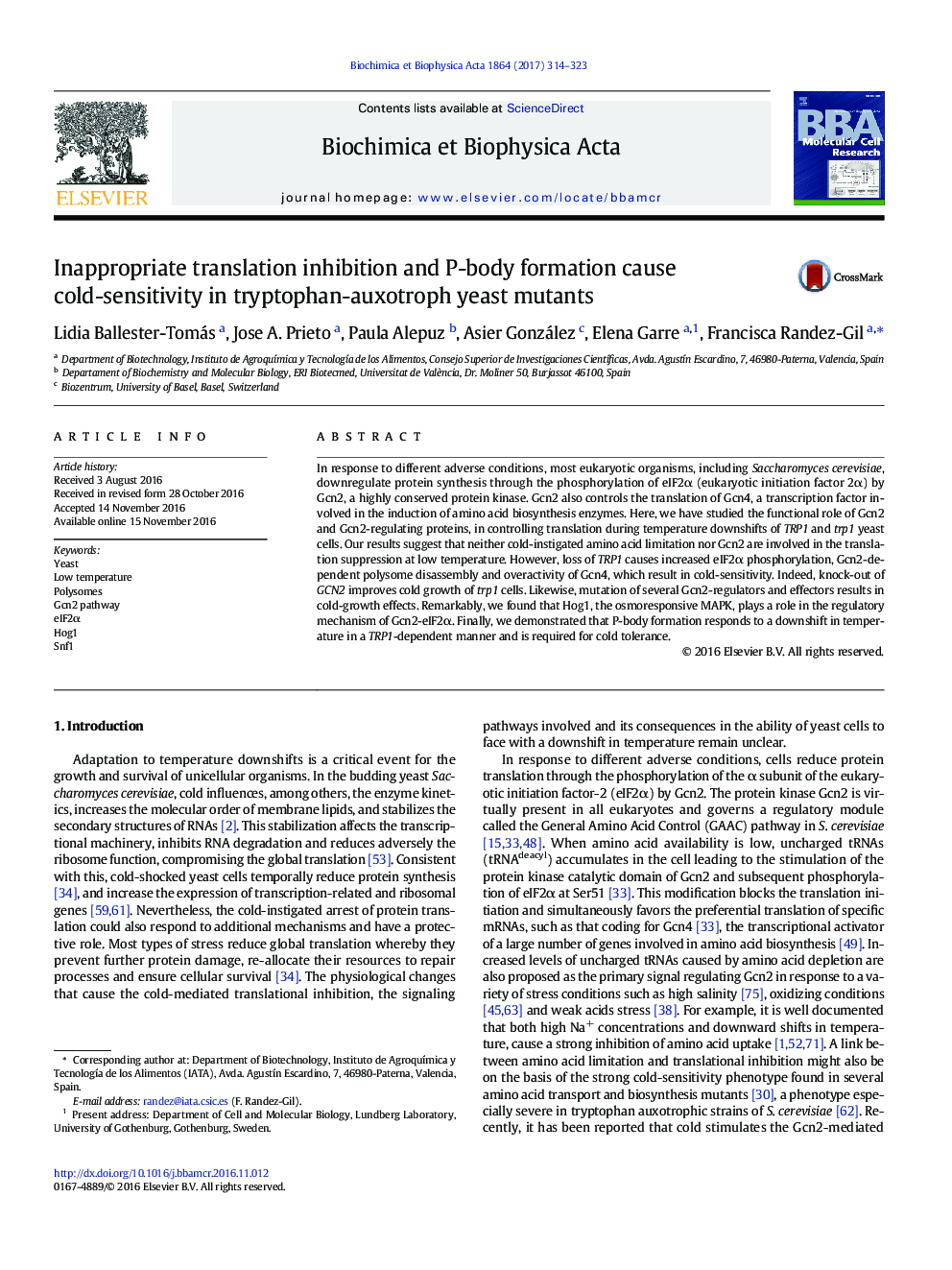| کد مقاله | کد نشریه | سال انتشار | مقاله انگلیسی | نسخه تمام متن |
|---|---|---|---|---|
| 5508773 | 1400399 | 2017 | 10 صفحه PDF | دانلود رایگان |
عنوان انگلیسی مقاله ISI
Inappropriate translation inhibition and P-body formation cause cold-sensitivity in tryptophan-auxotroph yeast mutants
دانلود مقاله + سفارش ترجمه
دانلود مقاله ISI انگلیسی
رایگان برای ایرانیان
موضوعات مرتبط
علوم زیستی و بیوفناوری
بیوشیمی، ژنتیک و زیست شناسی مولکولی
زیست شیمی
پیش نمایش صفحه اول مقاله

چکیده انگلیسی
In response to different adverse conditions, most eukaryotic organisms, including Saccharomyces cerevisiae, downregulate protein synthesis through the phosphorylation of eIF2α (eukaryotic initiation factor 2α) by Gcn2, a highly conserved protein kinase. Gcn2 also controls the translation of Gcn4, a transcription factor involved in the induction of amino acid biosynthesis enzymes. Here, we have studied the functional role of Gcn2 and Gcn2-regulating proteins, in controlling translation during temperature downshifts of TRP1 and trp1 yeast cells. Our results suggest that neither cold-instigated amino acid limitation nor Gcn2 are involved in the translation suppression at low temperature. However, loss of TRP1 causes increased eIF2α phosphorylation, Gcn2-dependent polysome disassembly and overactivity of Gcn4, which result in cold-sensitivity. Indeed, knock-out of GCN2 improves cold growth of trp1 cells. Likewise, mutation of several Gcn2-regulators and effectors results in cold-growth effects. Remarkably, we found that Hog1, the osmoresponsive MAPK, plays a role in the regulatory mechanism of Gcn2-eIF2α. Finally, we demonstrated that P-body formation responds to a downshift in temperature in a TRP1-dependent manner and is required for cold tolerance.
ناشر
Database: Elsevier - ScienceDirect (ساینس دایرکت)
Journal: Biochimica et Biophysica Acta (BBA) - Molecular Cell Research - Volume 1864, Issue 2, February 2017, Pages 314-323
Journal: Biochimica et Biophysica Acta (BBA) - Molecular Cell Research - Volume 1864, Issue 2, February 2017, Pages 314-323
نویسندگان
Lidia Ballester-Tomás, Jose A. Prieto, Paula Alepuz, Asier González, Elena Garre, Francisca Randez-Gil,